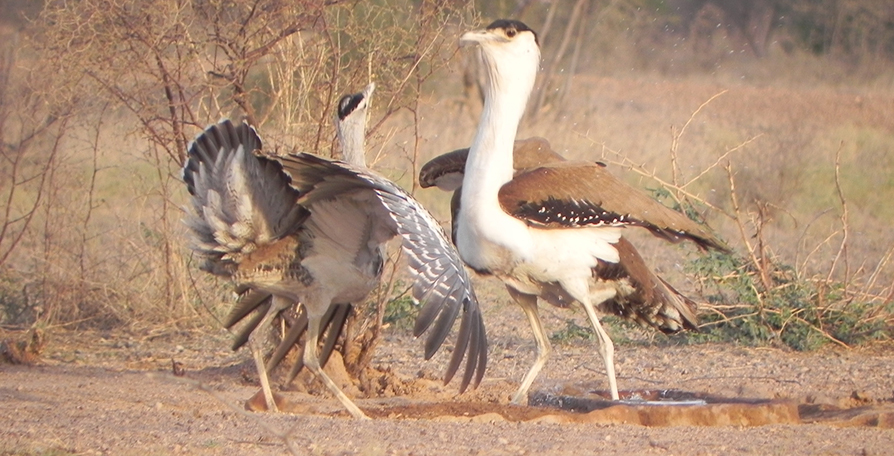Only 50 Great Indian Bustards left in the wild, no action on plan to save them
Almost two years after the Rajasthan government proposed setting up of captive breeding centres for the Great Indian Bustards to boost their wild population, the wildlife activists here have called for enforcement of recovery plan for the country’s most critically endangered bird. The GIB’s last remnant wild population of about 50 in Jaisalmer district accounts for 95% of its total world population.
No progress has been made on the proposal for establishing a captive breeding centre at Sorsan in Kota district and a hatchery in Jaisalmer’s Mokhala village for conservation of the State bird of Rajasthan. The previous BJP regime had taken up the work in 2017 after the Union Ministry of Environment, Forest and Climate Change sanctioned Rs. 33.85 crore to facilitate the two centres and authorised the Wildlife Institute of India to be its scientific arm
A group of wildlife activists, who met Rajasthan Minister of State for Environment & Forest Sukh Ram Bishnoi here earlier this week, offered to formulate an emergency action plan for conservation of GIB in order to help the State government tackle the issue methodically.
Tourism & Wildlife Society of Indian honorary secretary Harsh Vardhan, who was among those who met Mr. Bishnoi, said the decisions after the launch of the Project Bustard in 2013 had not been followed up for five years. “The forest officers have concentrated solely on tiger, which has done well. The tiger population is settling outside the Ranthambhore reserve... Two females recently gave litters in scrub areas dominated by human settlements,” he said.
Other members of the group were Sariska Foundation secretary Dinesh Durrani and former Chief Wildlife Warden R.N. Mehrotra.
The group pointed out that the WII had not nominated any scientist to work exclusively on GIB in the State despite the related issues discussed at a meeting held here in April 2017 to decide for setting up the conservation breeding centres. “No progress has been made on land allotment or deputing a scientists abroad to get the breeding training,” the members told the Minister.
Incubation unit
Mr. Vardhan said the group had suggested to the Minister that an incubation unit be set up at Jaisalmer district’s Sudasri — considered the sanctum sanctorum of the Desert National Park — so as to step up recruitment rate of the critically endangered species. “This can be done within a few weeks, whereas the breeding centres will take time,” he said.
Mr. Bishnoi told the group that he would visit the DNP after the ongoing session of the State Assembly was over and convene a meeting of WII, forest officers and wildlife activists to take the GIB programme forward. He agreed that the endangered bird should get the highest priority in the conservation plans.
Mr. Mohammad Iqbal is Deputy Editor of The HINDU daily and this piece appeared on 19 January 2019 in it.